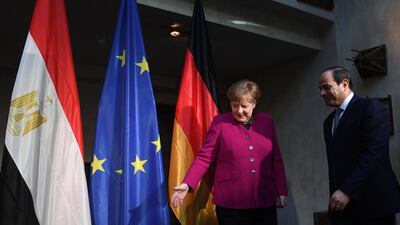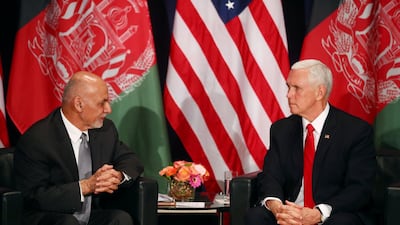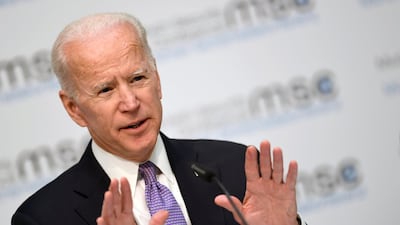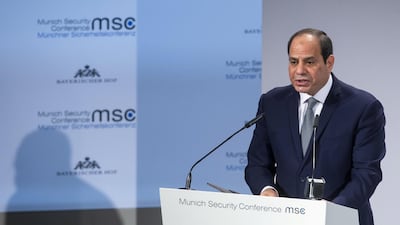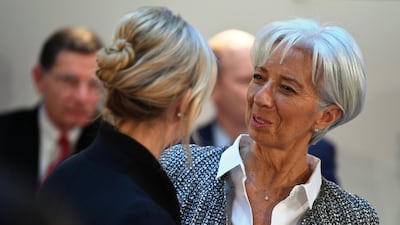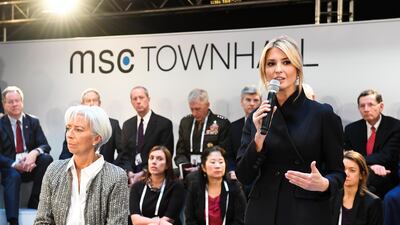The recent move by the US administration to cancel a major cold war era short and medium-range missile arms treaty with Russia is very bad for Europe but was likely unavoidable due to violations by Moscow, German Chancellor Angela Merkel told the Munich Security Conference on Saturday.
Last month, the Trump administration announced the American intention to withdraw from the Intermediate-Range Nuclear Forces Treaty deal, signed in 1987, citing longstanding violations by Russia. The following day, Russian President Vladimir Putin announced a similar move.
“For us in Europe, the cancellation of INF is very bad news after years of violations by Russia, that’s the reality. It probably wasn’t possible to do otherwise and we supported that US move,” she said.
The German leader added that it had sparked an “interesting situation” whereby the US and Russia had cancelled a deal that had a major impact on the European region who were themselves not a signatory. However, it also poses an opportunity, she added.
"Disarmament is something that concerns us all and where we would, of course, be glad if such talks were held not just between the United States, Europe and Russia but also with China," Ms Merkel said. “If we don't develop a common culture for arms exports we won't be able to develop a common defence policy.”
She said the world needs to “grapple” with disarmament and that if China were willing to enter talks after the collapse of the INF then "we would be delighted to see movements in this direction."
Ms Merkel touched on many areas of security, including the role of Nato and Germany’s contribution to defence spending. While Germany has been criticised for failing to meet the target of 2 per cent of GDP for defence spending.
While Ms Merkel reiterated recent increases that Berlin have made on military spending but also said that there should be a discussion regarding the metric for measuring contributions and perhaps GDP is not the best metric.
On international institutions, she said that as many were designed in the post-WWII era with the memories of National Socialism, Fascism and global conflict today they needed overhauling “as the world faces new challenges.”
She discussed the numerous issues facing trade, refugees, conflicts and global stability.
On the 2015 refugee crisis that saw hundreds of thousands of Syrians crossing into Europe, Ms Merkel said that while the massive response from the German people had been good there needs to be more government-led, structural approaches.
She said the 2015 arrival was no the beginning of the crisis but it was the result of years of failing to assist displaced people living in their millions in camps in Jordan, Turkey and Lebanon. Only by committing to support institutions such as the World Food Program, the UN and other aid agencies could the world hope to stop “people entrusting their lives to human traffickers.”
Ms Merkel gave a sharp rebuke of the Trump administration, questioning America’s recent actions in Syria, Afghanistan and elsewhere. Some of the questions the US’s move to pull forces out of Syria posed, she said, were whether it could strengthen Iran and Russia in Syria.
"Is it a good idea for the Americans to suddenly and quickly withdraw from Syria? Or will it once more strengthen the capacity of Iran and Russia to exert their influence?" Ms Merkel said, as the US struggles to convince allies to stay on in Syria once American troops leave.
On Afghanistan where Germany has forces she said there was a need to ensure there wasn’t a rushed departure but at the same time “We have to convince our population that our security is defended by being in the Hindu Kush.”
The main thrust of her argument as she began to wrap up was on the need to come together to discuss issues rather than jumping to hostility and grandstanding. “We need to come to the table to talk about issues,” she said.
An example the Chancellor gave was on comments made by US officials who said that German cars were a national security threat.
"We are proud of our cars and so we should be," Ms Merkel said, adding that the largest BMW plant was in the US state of South Carolina not in Bavaria and that many of these are made to be exported to China.
"It is not entirely easy for me as German chancellor to read that apparently — I don't have it in writing yet — the American Commerce Department says German, European cars are a threat to national security... If that is viewed as a security threat to the United States, then we are shocked," she stated to applause from the audience.
The end of her speech she was met with a long standing ovation from the crowd. She was praised by several of the participants who asked questions during the panel discussion.
During the post-speech questions, she discussed the sometimes slow response that Germany can have on defence matters, saying that the decision process can take a long time but once a decision has been made, “Germany is there.”
She pointed to the very strict arms controls in Germany as sometimes slowing down conversations regarding intervention or international support for allies overseas.
But she said, there were exceptions, such as Germany's support to the Kurdish Peshmerga after ISIS started massacring the Yazidi in Iraq. Ms Merkel said this was an example of Germany’s commitment to common responsibility and she said she could not sit by as the militants killed minorities.
But she said there needed to be an international discussion on arms controls. “If we don't develop a common culture for arms exports we won't be able to develop a common defence policy,” she said.

